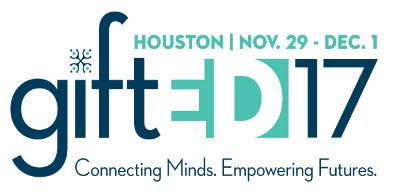
While differentiation may meet the needs of many students, there’s a unique pedagogy of differentiation appropriate for gifted students. (Kettler) Differentiation for gifted students may include pre-assessment, curriculum compacting, and modifying curriculum/instruction.
Is differentiation for high-ability students as effective as for other students? All learning should be individualized to some extent, but not all gifted students will respond the same. The quality and type of differentiation can affect outcomes. Educators should be open to change when necessary.
There may be better ways to accommodate the needs of some gifted students. Differentiated instruction is only one way to meet their needs. Gifted students may respond better with peer-grouping. For highly or profoundly gifted students, it may not be possible to differentiate age-based curriculum enough to challenge them.
There are some common barriers to effective differentiation. They include believing how to differentiate and to assess are set in stone; the teacher is unable to deviate from the program. Looking at differentiation as an ‘add-on’ rather than integrating it can also be a barrier.
In order to implement differentiated instruction, teachers need to start slow –anchor activities to deepen students’ understanding of a concept; enrich skills you want them to acquire. Continue by offering more choice more often; reflect on progress; and involve parents when implementing it.
What should be considered when using differentiated instruction? Product (student choice) and content delivery must be taken into consideration when differentiating instruction. Consider the process: tiered activities, curriculum ladders, higher-level questioning and open-ended activities. Consider assessment as well as pace and depth which also contribute to high quality differentiated instruction. A transcript is available on our Storify page.

Global #gtchat Powered by the Texas Association for the Gifted and Talented is a weekly chat on Twitter. Join us Tuesdays at 8E/7C/6M/5P in the U.S. and Wednesdays at 1 PM NZST/11 AM AEST/1 AM UK to discuss current topics in the gifted community and meet experts in the field. Transcripts of our weekly chats can be found at Storify. Our Facebook Page provides information on the chat and news & information regarding the gifted community. Also, checkout our Pinterest Page and Playlist on YouTube.
 About the author: Lisa Conrad is the Moderator of Global #gtchat Powered by TAGT and Social Media Manager of the Global #gtchat Community. She is a longtime advocate for gifted children and also blogs at Gifted Parenting Support. Lisa can be contacted at: gtchatmod@gmail.com
About the author: Lisa Conrad is the Moderator of Global #gtchat Powered by TAGT and Social Media Manager of the Global #gtchat Community. She is a longtime advocate for gifted children and also blogs at Gifted Parenting Support. Lisa can be contacted at: gtchatmod@gmail.com
Links:
Links:
The Pedagogy of Differentiation Moving from Strategies to Learning Design (pdf) (Kettler)
Why Differentiation Misses the Mark for Gifted Students
Using Differentiated Instruction for Gifted Learners
Defensible Differentiation: Why, What & How (pdf)
How to Differentiate Instruction in Academically Diverse Classrooms, 3rd Edition (Amazon)
Fair Isn’t Always Equal: Assessment & Grading in the Differentiated Classroom (Amazon)
Understanding Differentiated Instruction: Building a Foundation for Leadership (Book Chapter)
Teaching a Class with Big Ability Differences
18 Teacher-Tested Strategies for Differentiated Instruction
Compacting Contract (pdf)
A Starter Kit for Differentiated Instruction
Helping Gifted Kids Soar (pdf)
Sprite’s Site – De Bono’s 6 Action Shoes 9: One Size Shoe Cover System
Cybraryman’s Differentiated Instruction
Culturally Responsive Classrooms: Affirming Culturally Different Gifted Students (pdf)
Underrepresentation of High-Achieving Students of Color in Gifted Programs
Racial Bias in Gifted and Talented Placement, and What to Do about It
Pic courtesy of Pixabay CC0 Creative Commons
Graphic courtesy of Lisa Conrad



